
About
Our graduate programs in Science Education are designed for professionals engaged in teacher education; learning and teaching at the primary through post-secondary levels; industry; teaching and research institutions in both public and private sectors; museums and environmental education organizations.
The Department of Curriculum and Pedagogy offers a PhD concentration, as well as MA and MEd specializations in Science Education, along with a secondary Teacher Education (Bachelor of Education – BEd) major, Diploma, and Certificate in Science Education.
Doctor of Philosophy (PhD)
Doctor of Philosophy (PhD) – Curriculum Studies (Science Education)
Quick Facts
Mode of delivery: Face-to-Face
Registration Options: Full-time – 4 years
Overview
The PhD in Curriculum Studies with a focus on Science Education is a unique doctoral program for professionals interested in careers in academia, higher level educational administration and leadership, and educational enterprise. In addition to the general PhD requirements, the program structure includes science education and research methods courses. PhD students will enjoy ample collaboration opportunities with science education faculty and graduate students, as well as doctoral candidates in other curriculum areas.
The Master of Arts (MA)
The Master of Arts (MA) – Science Education
Quick Facts
Mode of delivery: Face-to-Face, in-person on the UBC Vancouver Campus (Full or Part-time).
Overview
The Master of Arts (MA) – Science Education is a graduate research degree in STEM (Science, Technology, Engineering and Mathematics) Education focusing on Science Education. Through individual and collaborative research, graduate students will develop and enhance their knowledge, theoretical understandings, and practice of Science Education. The program is ideal for those seeking leadership roles in order to make a difference in teacher education; learning and teaching at K-12 or post-secondary levels; industry; teaching and research institutions; government and private sectors; museums; outdoor settings and other science-based organizations. The degree prepares graduates who wish to pursue doctoral studies.
In addition to the general MA requirements, the program structure includes science education and research methods courses, and ample collaboration opportunities with science education faculty and graduate students across all curriculum areas. Graduate students will be mentored by experienced faculty members to conduct independent research studies driven by their own interests and contemporary issues and problems in the field.
Requirements
Undergraduate degree in Education and/or Science with related experience.
MA https://www.grad.ubc.ca/prospective-students/graduate-degree-programs/master-of-arts-science-education
The Master of Education (MEd)
Quick Facts
Mode of Delivery: Online (Part-Time) or In-person on the UBC Vancouver Campus (Full or Part-time). Application is for one mode of delivery, as they cannot be mixed/combined.
Overview
The Master of Education – Science Education degree offers students opportunities to pursue a wide range of research and professional interests in the field of STEM Education with the emphasis on science education. The program is ideal for professionals interested in teacher education; learning and teaching at the elementary, secondary, and post-secondary levels; industry; teaching and research institutions; government and private sector bodies; museums; outdoor settings and other science-based organizations. The program’s philosophy in theory and practice are inextricably linked and work hand in hand to improve the quality of education. Educators are empowered by collaboration across disciplines, countries, and contexts. Therefore this program values diverse expertise and experience; collaboration and mentorship; and innovative ideas, theories, and practices. Through the pursuit of students’ individual and collective interests, graduate students will develop and enhance their knowledge and practice of Science Education becoming ready to advance the quality of education and/or assume leadership roles in the field.
Requirements
Undergraduate degree in Education and/or Science with related experience.
MEd https://www.grad.ubc.ca/prospective-students/graduate-degree-programs/master-of-education-science-education
Bachelor of Education (BEd)
Please see link for information
Diploma and Certificate
Please see link for information
Program Schedule
Doctor of Philosophy (PhD)
Master of Arts (MA)
30 Credits – Suggested Program (* denotes mandatory courses)
A typical schedule of the program is represented below. Please notice, the course order might change.
YEAR 1
Winter 1 (September)
1. EDCP 562 (3) Introduction to Curriculum Issues and Theories*
Winter 2 (January)
2. EDCP 557 (3) Issues in the Teaching and Learning of the Sciences
Summer 1 (April – May)
3. EDUC 500 (3) Research Methodologies in Education*
Summer 2 (June – August)
4. EDCP585b (aka 544) (3) Teaching Math and Science through Technology
5. Elective 1 (3) Elective option #1
YEAR 2
Winter 1 (September)
6. EDCP 558 (3) Science Learning in Informal Settings
Winter 2 (January)
7. EDCP 538 (3) Theory and Research in Environmental Education
Summer 1 (April – May)
8. EDCP 599 (3) Master’s Thesis
Summer 2 (June – August)
9. EDCP 599 (3) Master’s Thesis
10. EDCP 599 (3) Master’s Thesis
Notes:
- A maximum of 6 credits may be taken at the 300-400 level.
- A maximum of 6 credits of any special upper level graduate courses (e.g., EDCP585A, EDCP585B etc.) may count towards the MA degree.
- A minimum of 12 credits of Science Education (ScEd) courses at the 500 level is required for the MA degree.
- Electives Options:
* Approved electives may be taken at other universities, subject to the terms of the Western Deans’ Agreement. http://wcdgs.ca/ WCDA Form and Graduate Exchange Agreement (McGill University, University of Toronto and University of Montréal). GREX Form
* There is a wide variety of on-campus (UBC-Vancouver or Okanagan) and online courses which are acceptable as electives and vary in the offering from year to year. See PDCE Courses - For more information on requirements, see the master’s program guides: Master’s Program Guidelines
Master of Education (MEd)
T30 Credits – Suggested Program (* denotes mandatory courses)
A typical schedule of the program is represented below. Please notice, the course order might change.
YEAR 1
Winter 1 (September)
1. EDCP 562 (3) Introduction to Curriculum Issues and Theories*
Winter 2 (January)
2. EDCP 557 (3) Issues in the Teaching and Learning of the Sciences
Summer 1 (April – May)
3. EDUC 500 (3) Research Methodologies in Education*
Summer 2 (June – August)
4. EDCP585b (aka 544) (3) Teaching Math and Science through Technology
5. Elective 1 (3) Elective option #1
YEAR 2
Winter 1 (September)
6. EDCP 558 (3) Science Learning in Informal Settings
Winter 2 (January)
7. EDCP 538 (3) Theory and Research in Environmental Education
Summer 1 (April – May)
8. EDCP 559 (3) Research in Teaching and Learning in the Sciences
Summer 2 (June – August)
9. Elective 2 (3) Elective option #2
YEAR 2 + TERM
Final Term Winter 1 (September)
10. EDCP 590 (3) Graduating Paper
Notes:
- A maximum of 6 credits may be taken at the 300-400 level.
- A maximum of 6 credits of any special upper level graduate courses (e.g., EDCP585A, EDCP585B etc.) may count towards the MEd degree.
- A minimum of 12 credits of Science Education (ScEd) courses at the 500 level is required for the MEd degree.
- Electives Options:
- Approved electives may be taken at other universities, subject to the terms of the Western Deans’ Agreement. http://wcdgs.ca/ WCDA Form and Graduate Exchange Agreement (McGill University, University of Toronto and University of Montréal). GREX Form
- There is a wide variety of on-campus (UBC-Vancouver or Okanagan) and online courses which are acceptable as electives and vary in the offering from year to year. See PDCE Courses.
- For more information on requirements, see the master’s program guides: Master’s Program Guidelines
Science Education Courses (500 level)
EDCP 538 | Theory and Research in Environmental Education
Credits: 3
This course will begin with an exploration of personal perspectives on the human-nature relationship and address the following areas: the relevance of eco-philosophical literature to personal eco-philosophies and drawing upon the research interest to derive knowledge claims in a mixed qualitative/quantitative context. Participants will review conceptions of Environmental Education (EE) and its research and practice which will incorporate the teaching and research interests, ideally across sciences, languages, humanities, and arts. Participants will also analyze how environmental science, aesthetics, ethics, and histories together with environmental action and community inform EE practice and what might they include as elements of their own eco-philosophies.
EDCP 544 | Mathematics and Science Teaching and Learning with Technologies
Credits: 3
This course analyzes and evaluates contemporary TPACK-related research and its implications for M&S teaching and learning, examines the process of TPACK acquisition by K-12 and postsecondary M&S teachers, proposes multiple ways of implementing research-informed education research on technology-enhanced M&S teaching provides constructive feedback aimed at implementing technology-enhanced pedagogies recognizes multiple sides of educational technologies and their pedagogical implications and produces high-quality academic papers in the field of educational technology implementation in M&S.
Course participants will examine existing research and develop criteria for evaluating technology-enhanced M&S activities, their pedagogical effectiveness, and their impact on students. To link the theory to practice, course participants will apply these criteria for designing and evaluating their own technology-enhanced M&S learning environments: an Educational Technology Exploration paper (theoretical analysis) and an Educational Technology M&S Lesson/Unit/Workshop/Lab Design Project (practical application).
EDCP 550 | Mathematics Education: Origins and Issues
Credits: 3
This course provides opportunities for students to examine various issues, perspectives, and paradigms in mathematics education and mathematics education research. The course issues may include the role of mathematics in STE(A)M, decolonizing and indigenizing mathematics education and STEM education, mathematics education in communities and connected to land/place, mathematics education for sustainability, and ethical issues related to teaching, learning, and researching mathematics for living well.
EDCP 551 | Mathematics Education: Current Issues
Credits: 3
In this course, we will delve into contemporary issues in mathematics education from starting points of language, embodied learning, and the arts. We will look beyond the level of words and vocabulary to include broader linguistic ideas that help clarify issues in mathematics teaching and learning. We will explore embodied ways of knowing, including embodied metaphor, gesture, and (kin)aesthetic ways of knowing, and the ways that these connect with symbols and diagrams. We will also explore interactions of mathematics and the arts in the broadest sense (visual arts, music, dance, drama, literary arts, fashion arts, architecture) and work with ways these can be brought into play in teaching and learning.
EDCP 552 | Mathematics Education: Early Years
Credits: 3
In this course, we will focus on students’ mathematical thinking in various contexts, at various grade levels and ages, as reported in research articles, captured on video/audio, or gathered by participants in the course. In addition, we will focus on strategies for capturing, listening, and responding to and supporting students’ mathematical learning. Questions to be addressed include: What is the nature of students’ mathematical thinking? How do they share their understandings (verbally, in writing, or visually)? How do parents and teachers mediate students’ mathematics learning? This course is suitable for students from across departments and disciplinary areas, especially those who have an interest in or teach in preschool/primary/elementary classrooms.
EDCP 553 | Mathematics Education: Beyond the Early Years
Credits: 3
In this graduate seminar, we will collectively explore contemporary issues and research in mathematics education pertaining to teachers and learners at elementary, middle school, secondary and tertiary levels (e.g. grades 5 and above). The curriculum will be emergent and, to the extent possible, will reflect and draw upon the interests and curiosities of students in the course. Topics explored may include- learners’ mathematical understanding, mathematical knowledge for teaching, inquiry, and problem solving, mathematics in out-of-school contexts, mathematics as habits of mind, teacher change, curricular reform, the role of textbooks and assessment in instruction, parental support, and so on.
We will engage in conversations about readings, activities, and our personal experiences to enrich our understandings of the chosen topics, and the ways in which they connect to research-based and innovative practices, related theories, and future research. Assignments will seek to inspire and support students to enact and reflect upon (small) changes in their own practices that contribute to enhancing mathematics education (for at least one learner).
EDCP 555 | Critical Analysis of Curriculum in Science Education
Credits: 3
Participants in this seminar will explore the implications of current perspectives in science for science education. This course will be approached through the examination of various scientific controversies and what they tell us about how knowledge gets constructed. Issues of equity in general, including gender and multiculturalism in science, will also be explored and implications for school app science drawn.
EDCP 556 | Theory and Research in the Social Context of School Science
Credits: 3
This course is designed to introduce teacher inquiry approaches employed around the world. In focusing on the social contexts where teachers collaborate, engage in classroom research, and develop their own professional practices, the course introduces theories and research that underpin teachers’ learning and enacting teaching in social contexts. Learning theories that have direct applications for classroom teaching will also be explored. Specifically, a variety of teacher collaborative inquiry approaches is drawn upon to help participants develop an understanding of how social contexts of school science, and other disciplinary areas, could be effectively transformed into spaces where learning could occur for students and teachers. Participants will be invited to reflect on the nature and roles of collaboration, teacher research, educational research, theoretical frameworks, innovative practices, and teacher reflection to promote discourses within social contexts.
Both Science and non-Science majors are welcome to participate in this course.
EDCP 557 | Issues in the Teaching and Learning of the Sciences
Credits: 3
This course is designed to develop knowledge in science education and teaching by exploring the intersection between science, science education, and philosophy. It seeks to expand participants’ current understandings of science and science education and to encourage the exploration of a range of perspectives. Through the course, participants will be introduced to select science and science education theories. They will be guided to examine discourses, issues, and practices that are germane to science are thus examined alongside science education programming in British Columbia, Canada, and the world. This introductory course to (science) education issues and theories will provide students opportunities to contextualize their own understandings of their professional practice and academic interests.
EDCP 558 | Science Learning in Informal Environments
Credits: 3
This course explores themes, theories, research studies, and perspectives concerning learning in informal environments such as natural and social history museums, science centers, art galleries, zoos, and aquaria. Participants will be provided with the opportunity to explore the nature and character of learning in informal settings; key influencing factors shaping learning; methodological approaches and issues surrounding researching learning arising from experiences in informal contexts.
Classes will be typified by both instructor and student-facilitated seminars focusing on critical engagement and debate of the literature of the field in the light of various theoretical and methodological standpoints. Classes will also involve the elucidation of key theoretical tenants through practical experiences examining learning in various informal settings, such as the Vancouver Aquarium and the HR MacMillan Space Center.
EDCP 559 | Research in the Teaching and Learning of the Sciences
Credits: 3
This course will engage the participants in the critical examination of research paradigms and corresponding research themes and methods in the field of science education. The main focus will be on the K-12 and college students and their learning of science. Participants will explore how/when and where science learning happens, how it can be facilitated, what promotes and what impedes science learning, and how the knowledge students gained is transferred to other fields. While we will focus on science learners, we will also discuss the implications of the results of science education research on science teaching.
Admissions
All graduate program applicants in the Department of Curriculum and Pedagogy (EDCP) must meet the minimum entry requirements established by the Faculty of Graduate and Postdoctoral Studies, which oversees graduate work at UBC. Applicants who do not meet the minimum requirements will be considered for admission only in exceptional circumstances.
Doctor of Philosophy
In addition to the Faculty of Graduate and Postdoctoral Studies requirements, the Curriculum Studies doctorate program requires:
- a Master’s degree with high standing in a relevant educational discipline,
- a sample of work demonstrating scholarly writing,
- a letter of intent describing the focus of the proposed research,
- support of three referees, one of which must be from a member of your thesis supervisory committee.
- regarding students possessing a thesis-based Master’s degree from other than a relevant educational discipline, it may be possible to proceed into the Ph.D. after taking the core course requirements of an appropriate Master’s degree in education at UBC.
Master of Arts (MA) & Master of Education (MEd)
In addition to the Faculty of Graduate and Postdoctoral Studies requirements, the program normally requires:
- One-two year/s of teacher education; or a four-year Bachelor’s degree in Education. In special circumstances, teacher education may be waived for those applicants who have a university degree with sufficient standing and experience related to their proposed field of study.
- Normally 18 credits of senior course work or a professional concentration in the area of interest.
- Two years’ teaching experience or other relevant professional experience.
MEd applicants focus their studies on the application of educational theory to their professional practice.
How to Apply
Find and Approach a Potential Supervisor
The most important first step in applying for admission to our graduate program is finding and approaching a potential supervisor in the department. This gives you an opportunity to discuss the research you are interested in completing as a graduate student. We make every effort to match an applicant with a supervisor. However, if there are no supervisors available, we will not be able to offer an admission to an applicant. Anyone interested in applying for admission to graduate program in our department is advised to visit the Curriculum and Pedagogy website via the Faculty page to find faculty whose research aligns with their interests. There is a space in the application form for you to list your preferred supervisors.
Apply online
Submit your application online
Complete the online application. To be considered for admission, submit your completed application including all supporting documents, by the deadlines noted below. Note: the online application will be open October 1.
For detailed application process and requirements, click here.
Please follow the instructions on the online application portal.
Early submissions are encouraged.
* The department deadline for receipt of completed, master program applications is December 1.
* References are due December 12.
* The department deadline for receipt of completed, doctoral program applications is December 1.
* References are due December 7.
Supporting Documents Checklist
Document type
- Scanned copies of all official transcripts and degree certificates (if any). Submit | Online.
- Three letters of recommendation (one of which for doctoral applicant must be from a member of the thesis supervisory committee). Submit | Online.
- CV/resume. Submit | Online.
- Evidence of English language proficiency. Submit | Online.
- Sample of Writing for doctoral applicants (no more than ten pages). Submit | Online.
- Any additional information. Submit | by email attachment to edcp.grad@ubc.ca.
Upload supporting documents online
Transcripts & Degree Certificates
Applicants will be asked to upload transcripts with their grade key (usually located on the back of the transcript). Even if the applicant does not yet have final marks on the transcript, we still require a copy as evidence of registration and academic progress (we do not accept printed student’s records).
Upload scanned transcripts and degree certificates (if any) online. Please be advised that if you are admitted you will be required to submit original transcripts and degree certificates (if any) in the SEALED and ENDORSED envelopes as soon as possible after admission is offered. Students are not allowed to register in courses until this requirement is met.
Statement of Intent for MA and PhD Applicants
In the application portal, you will be given the opportunity to add a Statement of Intent (maximum 2 pages) describing why you choose to pursue graduate studies at UBC and in which area of research you want to concentrate your work. For more information, click here.
Statement of Intent for MEd Applicants
Please write a summary of your reasons for wishing to enroll in the program of your choice, and what it is that you hope to achieve in completing this program.
Letters of Recommendation
We require three letters of recommendation (one of which for doctoral applicant must be from a member of the thesis supervisory committee). See detailed requirements.
Referees will be able to upload their letters once you have submitted your application, so please ensure that they are able to submit by the deadlines noted above and that you provide them with appropriate timelines.
Submit other supporting documents
Evidence of English Language Proficiency
Applicants from a university outside Canada in which English is not the primary language of instruction must present evidence of competency to pursue studies in the English language prior to the application deadline in December.
Test scores must have been taken within the last 24 months at the time of submission of your application, and official test scores ordered from the testing agency is required.
TOEFL minimum scores
Test Format | Minimum Score
Internet-based | 92 (minimum 22 on each component)
Computer-based | 237
Paper | 580
TOEFL Institution Code: 0965
TOEFL Department Code: 85
Detailed language requirements and other acceptable English proficiency tests
Permanent Residents
Permanent Residents are required to provide proof of immigration status and date of landing by submitting a copy of the Record of Landing Form or a copy of both the front and back of their Permanent Resident card.
Additional Information
You are welcome to submit additional information, regarding professional employment experience, publications, or awards, which you feel should be taken into account in considering your application. These can be sent by email attachment to edcp.grad@ubc.ca.
Contact Us
Mailing Address
Department of Curriculum & Pedagogy
Faculty of Education
University of British Columbia
Scarfe Building 2125 Main Mall
Vancouver BC V6T 1Z4 Canada
Important Numbers
Apply for graduate programs:
Gina Hiu Lam Wong
604.822.5367
Email: edcp.grad@ubc.ca
Apply for undergraduate programs:
Contact the Teacher Education Office
Faculty
-
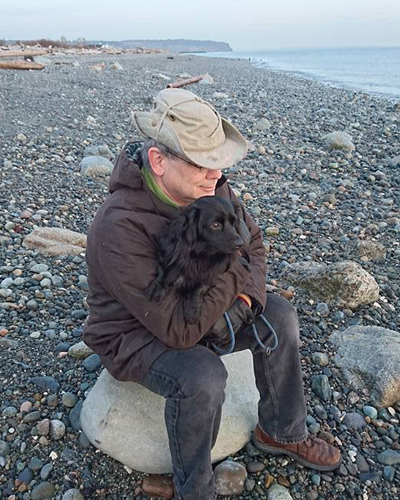
J. Douglas Adler
Associate Professor of Teaching
-
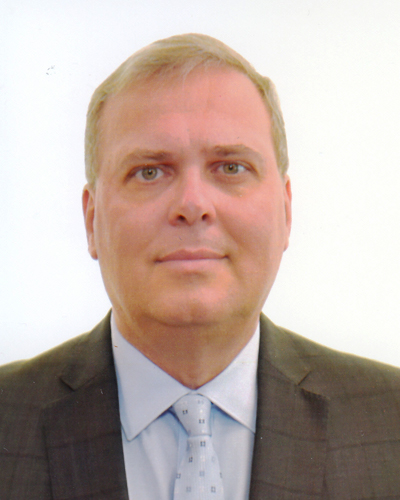
David Anderson
Professor
-
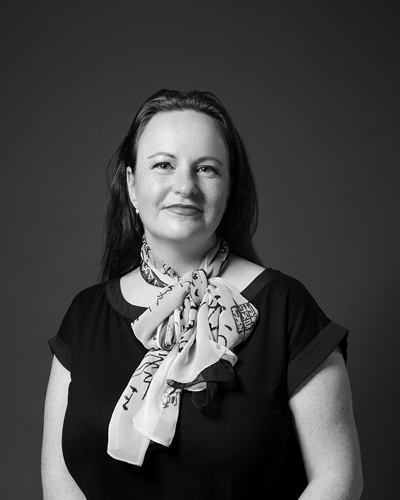
Jillianne Code
Associate Professor
-
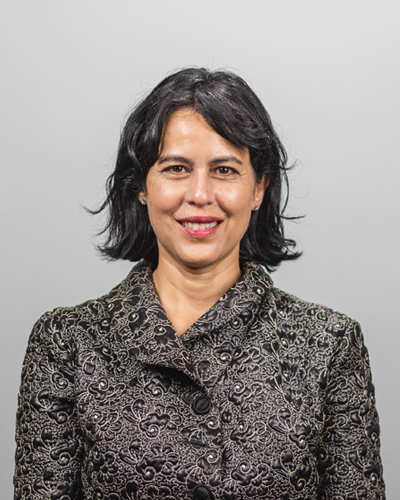
Samia Khan
Professor
-
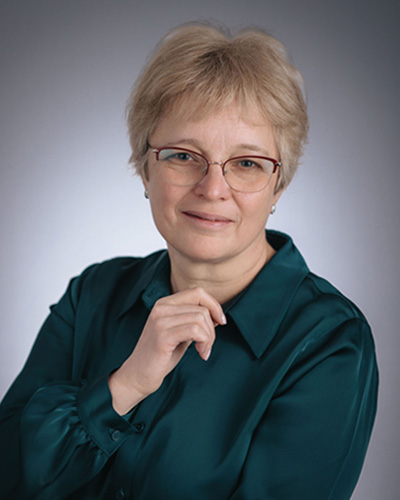
Marina Milner-Bolotin
Professor
-
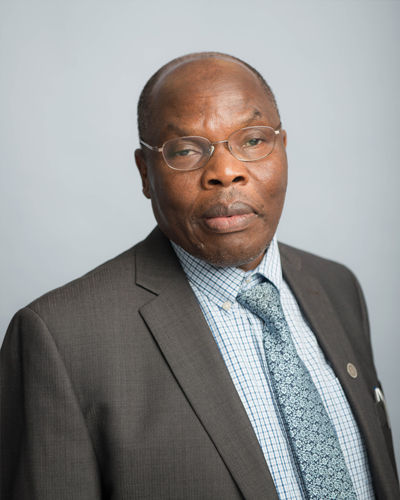
Samson Nashon
Professor & Head
-

Sandra Scott
Professor of Teaching
-
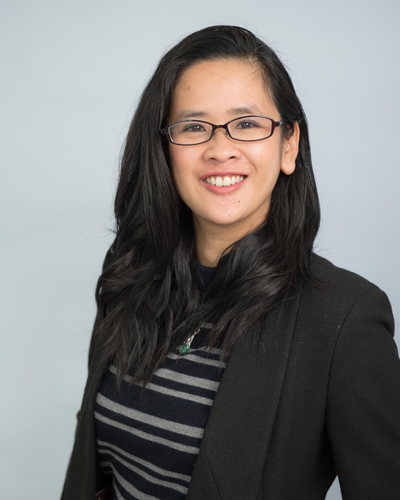
Yuen Sze Michelle Tan
Associate Professor